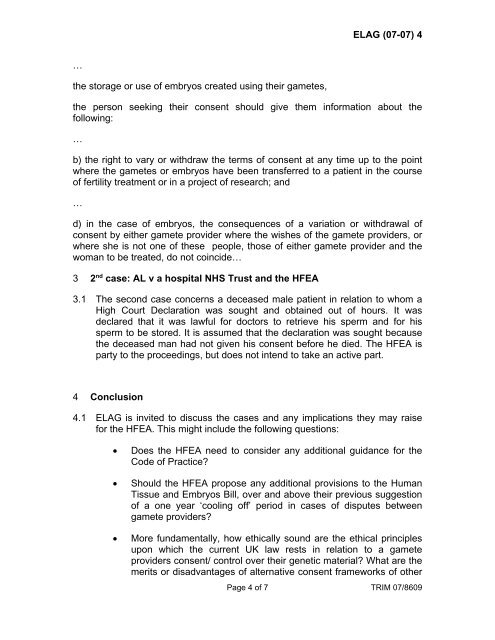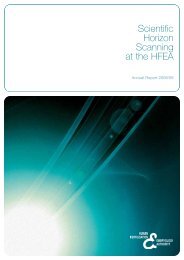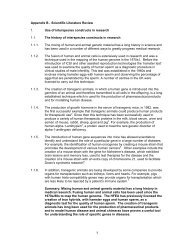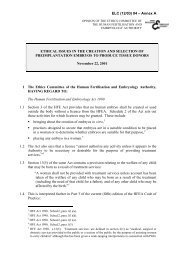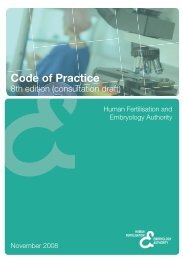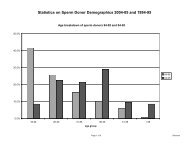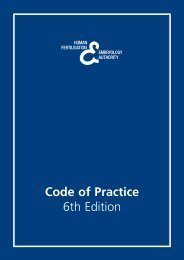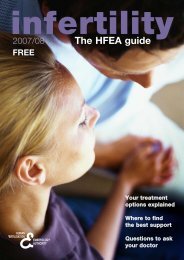Bilateral consent to use sperm/embryos for reproductive purposes
Bilateral consent to use sperm/embryos for reproductive purposes
Bilateral consent to use sperm/embryos for reproductive purposes
Create successful ePaper yourself
Turn your PDF publications into a flip-book with our unique Google optimized e-Paper software.
ELAG (07-07) 4…the s<strong>to</strong>rage or <strong>use</strong> of <strong>embryos</strong> created using their gametes,the person seeking their <strong>consent</strong> should give them in<strong>for</strong>mation about thefollowing:…b) the right <strong>to</strong> vary or withdraw the terms of <strong>consent</strong> at any time up <strong>to</strong> the pointwhere the gametes or <strong>embryos</strong> have been transferred <strong>to</strong> a patient in the courseof fertility treatment or in a project of research; and…d) in the case of <strong>embryos</strong>, the consequences of a variation or withdrawal of<strong>consent</strong> by either gamete provider where the wishes of the gamete providers, orwhere she is not one of these people, those of either gamete provider and thewoman <strong>to</strong> be treated, do not coincide…33.12 nd case: AL v a hospital NHS Trust and the HFEAThe second case concerns a deceased male patient in relation <strong>to</strong> whom aHigh Court Declaration was sought and obtained out of hours. It wasdeclared that it was lawful <strong>for</strong> doc<strong>to</strong>rs <strong>to</strong> retrieve his <strong>sperm</strong> and <strong>for</strong> his<strong>sperm</strong> <strong>to</strong> be s<strong>to</strong>red. It is assumed that the declaration was sought beca<strong>use</strong>the deceased man had not given his <strong>consent</strong> be<strong>for</strong>e he died. The HFEA isparty <strong>to</strong> the proceedings, but does not intend <strong>to</strong> take an active part.44.1ConclusionELAG is invited <strong>to</strong> discuss the cases and any implications they may raise<strong>for</strong> the HFEA. This might include the following questions:• Does the HFEA need <strong>to</strong> consider any additional guidance <strong>for</strong> theCode of Practice?• Should the HFEA propose any additional provisions <strong>to</strong> the HumanTissue and Embryos Bill, over and above their previous suggestionof a one year ‘cooling off’ period in cases of disputes betweengamete providers?• More fundamentally, how ethically sound are the ethical principlesupon which the current UK law rests in relation <strong>to</strong> a gameteproviders <strong>consent</strong>/ control over their genetic material? What are themerits or disadvantages of alternative <strong>consent</strong> frameworks of otherPage 4 of 7 TRIM 07/8609


